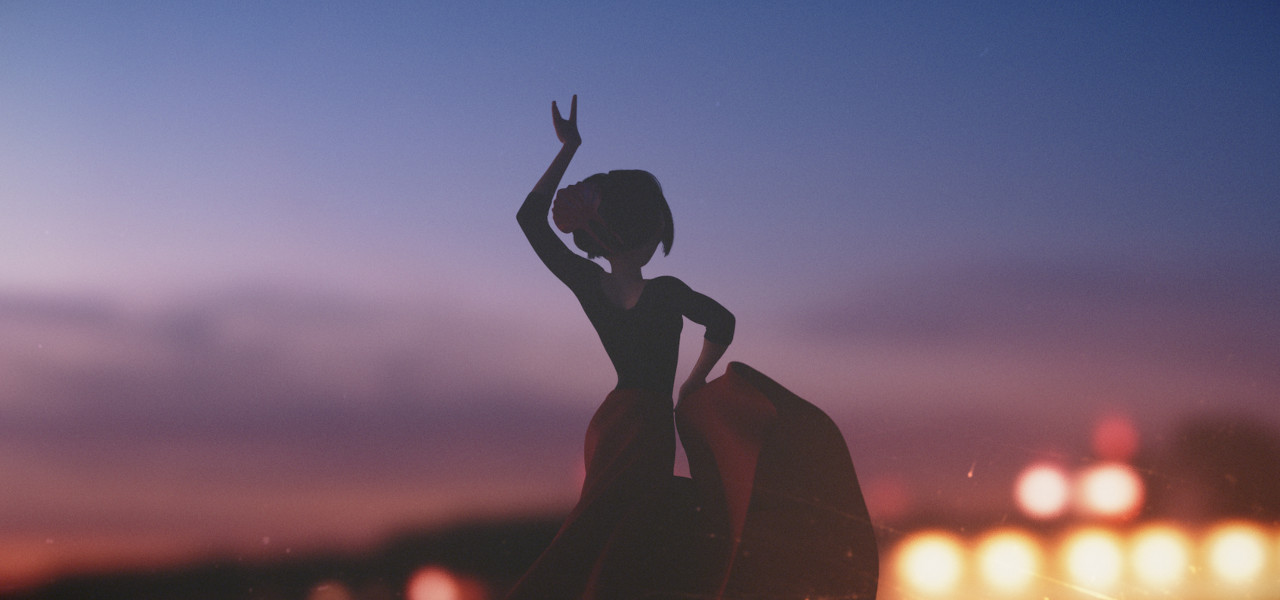Rodrigo Blaas, a key figure in Spanish animation who spent years at Pixar working on modern classics, including Finding Nemo, The Incredibles, Ratatouille, Wall-E, Up, and many others, is developing his debut directorial feature, Duende.
To make the announcement, Blaas’ El Guiri Studios published a short teaser for the project, seen below.
Plot details are not being released now, but a short description of the film on El Guiri’s website reads:
Inspired by Flamenco, our love of Japan and the music of Rosalía. The spirit of Flamenco and Japan reimagined in an animated world. A first look at Duende, an animated feature film in development at El Guiri Studios.
Speaking with Cartoon Brew, Blaas explained:
We are in the early stages. We have crafted a beautiful script and are now seeking a studio/distribution partner that recognizes the unique opportunity of telling this bold cross-cultural story that fuses the soul of flamenco with the emotional spirit of J-Pop. Art and music have the power to help us embrace and fall in love with other cultures, and this film is a celebration of that universal language.
In English, the word “duende” literally translates to “elf,” but it has another, more ethereal meaning. The term is often used to reference the feeling of awe and inspiration one has, especially when standing in nature. An overwhelming sense of beauty and magic. In the trailer, we get a hint at how that second meaning of the word may influence the world of Duende.
We also hear how Rosalía’s music will influence the project, although the Catalan singer is not attached to the project. Rosalía has become one of Spain’s most internationally influential artists in generations, celebrated for evolving flamenco by fusing it with contemporary sounds while never losing touch with its emotional core. Her rise to global stardom was already underway when she delivered one of the most unforgettable moments in recent Spanish Academy Goya Awards history: a haunting 2019 performance of Los Chunguitos’ heart-melting ballad “Me Quedo Contigo.” Stripped down and achingly intimate, the rendition showcased her ability to bridge tradition and modernity, embodying the very essence of “duende,” the ineffable spirit of art that Blaas’ film now seeks to capture onscreen.

